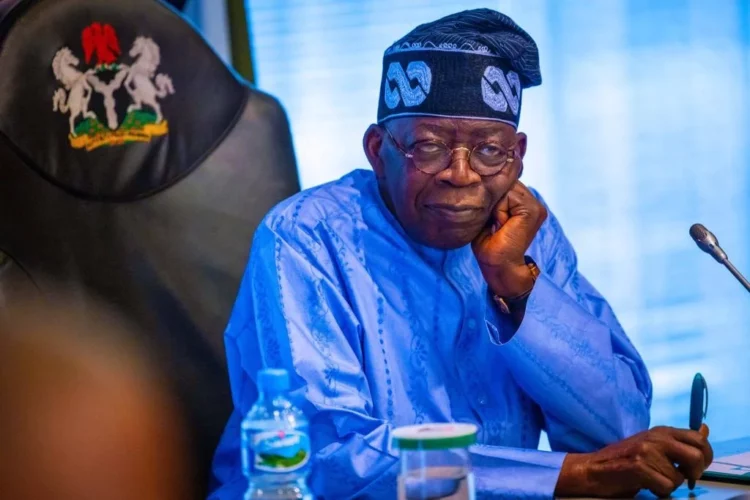The next 25 years will pose significant challenges for Nigeria and other developing economies, as the World Bank’s latest Global Economic Prospects report note that despite their role in driving 60 per cent of global growth, developing economies face their weakest long-term growth outlook since 2000.
According to the World Bank, the global economy is projected to grow at a steady 2.7 per cent annually from 2024 to 2026, with inflation and interest rates gradually declining. Developing economies, however, are expected to maintain growth at around four per cent, a pace slower than pre-pandemic levels and inadequate for tackling poverty or meeting broader development goals.
The report noted that growth in Sub-Saharan Africa (SSA) had picked up from 2.9 percent in 2023 to an estimated 3.2 percent in 2024 which was 0.3 percentage point lower than projected in June. It also noted that growth in Nigeria and South Africa, the region’s two largest economies, rose to an average of 2.2 percent in 2024, supported by improved electricity supply in South Africa and higher oil production in Nigeria.
“Growth rates in the region’s largest two economies will continue to lag those of the rest of the region, despite projected growth pickups in both countries. Excluding the two largest economies, growth in the region is forecast to strengthen from 4 percent in 2024 to about 5.3 percent in 2025–26.”
It noted that significant currency depreciations in Nigeria as well as Angola and Ethiopia had sparked persistent sharp price increases, with the majority of countries in the region experiencing moderate and declining price increases, though food price inflation remained relatively high.
“Moreover, food insecurity remained elevated across the region, partly owing to adverse weather events, such as droughts in Southern Africa and floods elsewhere. Growth in SSA is expected to firm to 4.1 percent in 2025 and 4.3 percent in 2026, as financial conditions ease alongside further declines in inflation. Following weaker-than-expected regional growth last year, growth projections for 2025 have been revised upward by 0.2 percentage point, and for 2026 by 0.3 percentage point. The growth trajectory, however, is expected to be unevenly distributed among SSA economies.”
World Bank Chief Economist and Senior Vice President for Development Economics, Indermit Gill, “The next 25 years will be a tougher slog for developing economies than the last 25. Most of the forces that once aided their rise have dissipated. In their place have come daunting headwinds: high debt burdens, weak investment and productivity growth, and the rising costs of climate change. In the coming years, developing economies will need a new playbook that emphasises domestic reforms to quicken private investment, deepen trade relations, and promote more efficient use of capital, talent and energy.”
The World Bank noted that developing economies are more important for the global economy than they were at the start of the century. “They account for about 45 per cent of global GDP, up from 25 per cent in 2000. Their interdependence has also grown: more than 40 per cent of their goods exports go to other developing economies, double the share in 2000. Developing economies have also become an important source of global capital flows, remittances, and development assistance to other developing economies: between 2019 and 2023, they accounted for 40 per cent of global remittances, up from 30 per cent in the first decade of the century.
Since 2014, with the exception of China and India, the average per capita growth rates of income in developing economies have been half a percentage point lower than that in wealthy economies, widening the rich-poor gap.
As a result, these economies now have greater sway on growth and development outcomes in other developing economies. For example, an increase of 1 percentage point in the GDP growth of the three largest developing economies—China, India, and Brazil—tends to result in a cumulative GDP boost of nearly 2% in other developing economies after three years. Those effects, however, are only about half the effect of growth in the three biggest economies: the United States, the euro area, and Japan. The welfare of developing economies, in short, is still strongly tied to growth in the big three advanced economies.
“In a world shaped by policy uncertainty and trade tensions, developing economies will need bold and far-reaching policies to seize untapped opportunities for cross-border cooperation,” said M. Ayhan Kose, the World Bank’s Deputy Chief Economist and Director of the Prospects Group. “A good start would be to pursue strategic trade and investment partnerships with the rapidly expanding markets of other developing nations. Modernising transportation infrastructure and standardising customs processes are critical steps to cut unnecessary expenses and foster greater trade efficiency. Finally, sound macroeconomic policies at home will fortify their capacity to navigate the uncertainties of the global outlook.”











